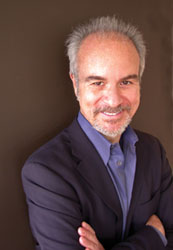 Michael graduated from Antioch School of Law in 1978 and wasted no time before foraying into the struggle for social justice. His first office overlooked Adams Morgan, the heart of Washington DC’s immigrant community.
Michael graduated from Antioch School of Law in 1978 and wasted no time before foraying into the struggle for social justice. His first office overlooked Adams Morgan, the heart of Washington DC’s immigrant community.
In 1980 Michael worked on the landmark Filartiga v. Pena case, which established for the first time that the U.S. courts have jurisdiction to hear damage cases against noncitizens for grave violations of human rights committed outside the United States. Dozens of human rights cases have built upon the Filartiga precedent bringing survivors of torture a measure of justice in the U.S. courts.
Michael began teaching law at Antioch, and it was there that he met Candace Kattar, who later became his wife and law partner. In the 1980s, Michael and Candace took up the legal defense of Central Americans caught in a web of U.S. policies that sought to deny them asylum and deport them to places where their lives were clearly in danger.
Maggio and Kattar quickly developed into an influential immigration law firm with a diverse and wide range of clients.
Michael’s loving heart and sharp intellect combined to make him an extraordinary lawyer, one who embraced a passion for social justice and perhaps an even greater passion for life.
Michael was active in the National Lawyers Guild, AILA, and served on the Board of Directors of the National Immigration Project. He was a dedicated supporter of CHRCL.
Michael died in February 2008 after a courageous battle with cancer.
Read more about Michael Maggio.

